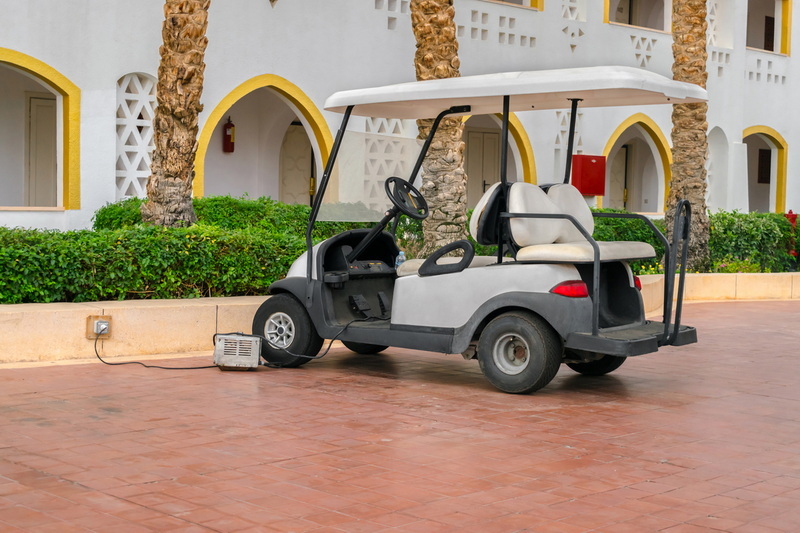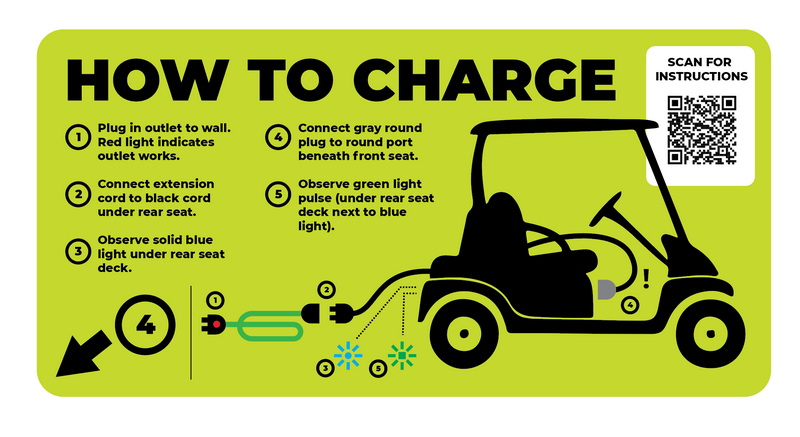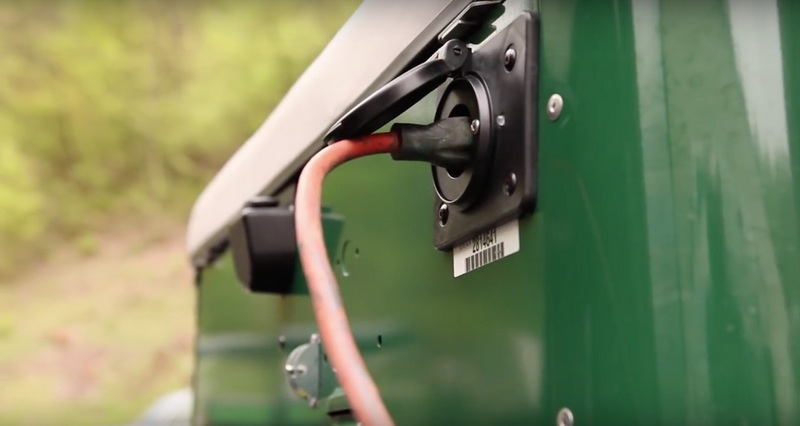Content Menu
● Understanding Electric Golf Cart Batteries
>> Lead-Acid Batteries
>> Lithium-Ion Batteries
● Factors Affecting Charging Time
>> Battery Capacity
>> Charger Amperage
>> State of Charge
>> Temperature
● Best Practices for Charging Your Golf Cart
>> Charge After Each Use
>> Use the Right Charger
>> Avoid Overcharging
>> Store in a Cool, Dry Place
>> Regularly Inspect the Charger
● Tips for Maintaining Your Golf Cart Battery
>> Regularly Check Water Levels
>> Clean Battery Terminals
>> Monitor Battery Voltage
>> Equalize Your Batteries
>> Avoid Deep Discharges
● Conclusion
● Frequently Asked Questions
>> 1. How long does it take to charge a golf cart battery?
>> 2. Can I leave my golf cart plugged in overnight?
>> 3. What should I do if my golf cart battery is not charging?
>> 4. How can I extend the life of my golf cart batteries?
>> 5. Is it better to use a fast charger for my golf cart?
Understanding Electric Golf Cart Batteries
Electric golf carts have become increasingly popular for both recreational and practical uses. Whether you're using one on the golf course, in a gated community, or for personal transportation, understanding how long it takes to charge an electric golf cart is essential for optimal performance and convenience. In this article, we will explore the factors that influence charging time, the types of batteries used, best practices for charging, and tips for maintaining your golf cart's battery life.
Electric golf carts typically use lead-acid batteries or lithium-ion batteries. Each type has its own characteristics, advantages, and charging requirements.

Lead-Acid Batteries
Lead-acid batteries are the most common type used in electric golf carts. They are relatively inexpensive and have been around for decades. These batteries come in two main types: flooded lead-acid and sealed lead-acid (AGM or gel).
- Flooded Lead-Acid Batteries: These require regular maintenance, including checking water levels and ensuring they are charged properly. They typically take longer to charge, often requiring 6 to 8 hours for a full charge. Flooded batteries are also more sensitive to temperature changes, which can affect their performance and charging efficiency.
- Sealed Lead-Acid Batteries: These are maintenance-free and can be charged more quickly. They usually take about 4 to 6 hours to charge fully. Sealed batteries are less prone to leakage and can be installed in various orientations, making them a versatile choice for many users.
Lithium-Ion Batteries
Lithium-ion batteries are becoming more popular due to their lightweight design and longer lifespan. They charge faster than lead-acid batteries, often taking only 2 to 4 hours for a full charge. Additionally, they do not require maintenance and can handle deeper discharges without damage. This makes them an attractive option for those who want a hassle-free experience.
Factors Affecting Charging Time
Several factors can influence how long it takes to charge an electric golf cart:
Battery Capacity
The capacity of the battery, measured in amp-hours (Ah), plays a significant role in charging time. A higher capacity battery will take longer to charge than a lower capacity battery, assuming the same charger is used. For instance, a 100 Ah battery will take longer to charge than a 50 Ah battery when using the same charger.
Charger Amperage
The amperage of the charger affects how quickly the battery can be charged. A higher amperage charger can reduce charging time significantly. For example, a 20-amp charger will charge a battery faster than a 10-amp charger. However, it's essential to ensure that the charger is compatible with the battery type to avoid damage.
State of Charge
The current state of charge of the battery also impacts charging time. If the battery is completely discharged, it will take longer to charge than if it is only partially discharged. Regularly monitoring the battery level can help you avoid deep discharges, which can shorten battery life.
Temperature
Temperature can affect battery performance and charging efficiency. Batteries charge more efficiently at moderate temperatures. Extremely cold or hot conditions can slow down the charging process. For example, charging a battery in freezing temperatures can lead to longer charging times and reduced capacity.

Best Practices for Charging Your Golf Cart
To ensure your electric golf cart batteries last as long as possible and charge efficiently, follow these best practices:
Charge After Each Use
It's a good habit to charge your golf cart after each use, even if you haven't fully depleted the battery. This practice helps maintain the battery's health and ensures you have enough charge for your next outing. Additionally, it prevents the battery from entering a deep discharge state, which can be harmful.
Use the Right Charger
Always use the charger that is specifically designed for your golf cart's battery type. Using the wrong charger can damage the battery and reduce its lifespan. Check the manufacturer's recommendations for the appropriate charger specifications.
Avoid Overcharging
Overcharging can lead to battery damage and reduced performance. Most modern chargers have built-in features to prevent overcharging, but it's still important to monitor the charging process. Disconnect the charger once the battery is fully charged to avoid unnecessary wear.
Store in a Cool, Dry Place
When not in use, store your golf cart in a cool, dry place. Extreme temperatures can affect battery performance and charging efficiency. If possible, keep the cart in a garage or shaded area to protect it from the elements.
Regularly Inspect the Charger
Inspect your charger regularly for any signs of wear or damage. A faulty charger can lead to improper charging and may even pose safety risks. If you notice any issues, replace the charger immediately.
Tips for Maintaining Your Golf Cart Battery
Proper maintenance can extend the life of your golf cart batteries and improve their performance. Here are some tips:
Regularly Check Water Levels
For flooded lead-acid batteries, check the water levels regularly and top them off with distilled water as needed. This helps prevent sulfation and extends battery life. Ensure that the water covers the plates but does not overflow.
Clean Battery Terminals
Keep the battery terminals clean and free of corrosion. Use a mixture of baking soda and water to clean the terminals, and ensure they are tightly connected. Corroded terminals can lead to poor connections and reduced performance.
Monitor Battery Voltage
Use a multimeter to check the voltage of your batteries regularly. This can help you identify any issues before they become serious problems. A significant drop in voltage may indicate that the battery is nearing the end of its life.
Equalize Your Batteries
If you are using flooded lead-acid batteries, consider equalizing them periodically. This process helps balance the charge across all cells and can improve overall performance. Equalization should be done according to the manufacturer's guidelines.
Avoid Deep Discharges
Try to avoid discharging your batteries below 50% of their capacity. Deep discharges can lead to sulfation and significantly shorten the lifespan of lead-acid batteries. Lithium-ion batteries can handle deeper discharges better, but it's still advisable to keep them above 20% charge.
Conclusion
Charging an electric golf cart is a straightforward process, but understanding the factors that influence charging time can help you optimize your usage. By following best practices for charging and maintaining your batteries, you can ensure that your golf cart remains reliable and efficient for years to come.
Whether you choose lead-acid or lithium-ion batteries, knowing how long it takes to charge your electric golf cart and how to care for it will enhance your overall experience. In summary, charging times can vary based on battery type, charger specifications, and environmental conditions. By being proactive in your charging habits and maintenance routines, you can enjoy the convenience and fun of your electric golf cart without the worry of running out of power.

Frequently Asked Questions
1. How long does it take to charge a golf cart battery?
Charging times can vary based on the battery type and charger used. Generally, lead-acid batteries take 6 to 8 hours to charge fully, while lithium-ion batteries can take 2 to 4 hours.
2. Can I leave my golf cart plugged in overnight?
Yes, it is generally safe to leave your golf cart plugged in overnight, especially if you have a modern charger with an automatic shut-off feature. However, it's best to monitor the charging process to avoid overcharging.
3. What should I do if my golf cart battery is not charging?
If your golf cart battery is not charging, check the charger for any signs of damage, ensure all connections are secure, and inspect the battery for any issues. If problems persist, consult a professional for assistance.
4. How can I extend the life of my golf cart batteries?
To extend the life of your golf cart batteries, charge them regularly, avoid deep discharges, maintain proper water levels (for flooded batteries), and keep the terminals clean.
5. Is it better to use a fast charger for my golf cart?
While fast chargers can reduce charging time, they may also generate more heat and potentially shorten battery life. It's essential to use a charger that is compatible with your battery type and to follow the manufacturer's recommendations.










































